Lektion 14 - Bedingte Anweisungen
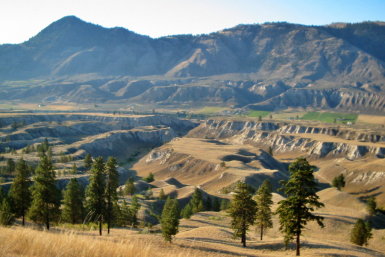
In this lesson you'll learn how to use conditional sentences in English. You'll also learn how to use verb phrases to be supposed to and used to.
In the vocabulary section, you'll learn the English words for objects that are found in nature.
This lesson starts with a short conversation between two people who are discussing their plans for the weekend.
Anzeige
Konversationen
English
Mark and Alice see each other as they are leaving from work on Friday. They discuss their plans for the weekend.
Mark: What are you up to this weekend?
Alice: I'm going to the beach on Saturday with some friends, then we're going for dinner, and after that we're going to a concert. I don't have any plans for Sunday yet. What are you doing this weekend?
Mark: I'm going to go hiking to Kennedy Lake in the mountains.
Alice: That's a long hike, but it's worth it. It's a beautiful lake. What are you doing on Sunday? Do you want to go for a coffee?
Mark: Sure. How about we meet at Wick's Café at 11.
Alice: Sounds good. I'll see you there.
Deutsch
Mark und Alice sehen sich, als sie am Freitag von der Arbeit gehen. Sie besprechen ihre Pläne für das Wochenende.
Mark: Was hast Du dieses Wochenende vor?
Alice: Ich gehe am Samstag mit ein paar Freunden an den Strand, dann gehen wir essen und danach gehen wir zu einem Konzert. Für Sonntag habe ich noch nichts vor. Was machst du dieses Wochenende?
Mark: Ich werde zum Kennedy Lake in den Bergen wandern gehen.
Alice: Das ist eine lange Wanderung, aber es lohnt sich. Es ist ein wunderschöner See. Was machst du am Sonntag? Willst du einen Kaffee trinken gehen?
Mark: Gewiss. Wie wäre es, wenn wir uns um 11 im Wick's Café treffen?
Alice: Gute Idee. Ich sehe dich dort.
Natural Objects
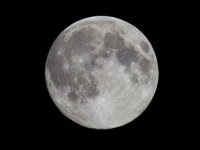
 moon
moon
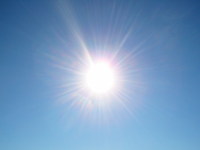
 sun
sun

 stars
stars

 Earth
Earth

 mountain
mountain

 cliff
cliff

 hill
hill
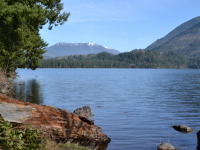
 lake
lake
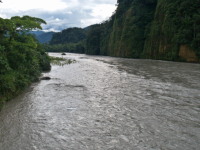
 river
river
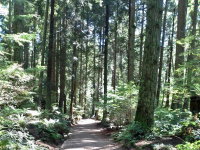
 forest
forest

 desert
desert
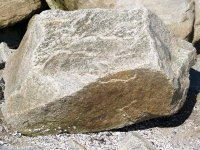
 rock
rock
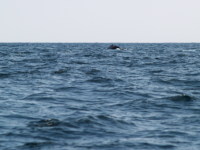
 ocean
ocean
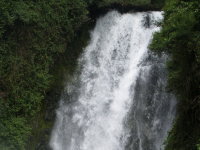
 waterfall
waterfall
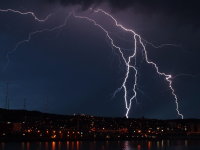
 lightning
lightning

 cloud
cloud
Grammatik
Conditional Sentences
A conditional sentence contains a statement that will be true if a certain condition or conditions happen. Conditional sentences are often formed using a group of verbs in English called modal verbs (will, shall, can, may, and must), usually along with the conjuction if. Conditional statements can be simple present, simple past, or past perfect.
Present Conditional
The simple present conditional is used to talk about things that happen when cetain conditions are met. The present tense of verbs or the present tense of a modal verb plus infinitive are used in these sentences.
Examples
| If I open the door, the cat runs outside. | Wenn ich die Tür öffne, läuft die Katze hinaus. |
| If I open the door, the cat will run outside. | Wenn ich die Tür öffne, wird die Katze nach draußen laufen. |
| If I open the door, the cat can run outside. | Wenn ich die Tür öffne, kann die Katze nach draußen laufen. |
| If I open the door, the cat may run outside. | Wenn ich die Tür öffne, könnte die Katze nach draußen laufen. |
| The cat will run outside if I open the door. | Die Katze wird nach draußen laufen, wenn ich die Tür öffne. |
| The cat will run outside if I open the door and say his name. | Die Katze wird nach draußen laufen, wenn ich die Tür öffne und seinen Namen sage. |
| The phone will break if I drop it or throw it. | Das Telefon geht kaputt, wenn ich es fallen lasse oder es werfe. |
Simple Past Conditional
The simple past conditional is used to refer to an imaginary or unreal event and its probable result. For the simple past conditional, would, which is the past tense of will, is used.
Examples
| I would agree with you if you were right. | Ich würde dir zustimmen, wenn du Recht hättest. |
| The cat would go outside if I opened the door. | Die Katze ging nach draußen, wenn ich die Tür öffnete. |
| I would read the book if I had more time. | Ich würde das Buch lesen, wenn ich mehr Zeit hätte. |
| I would read the book if it was interesting and I had more time. | Ich würde das Buch lesen, wenn es interessant wäre und ich mehr Zeit hätte. |
| I would read the book if it was interesting or I had more time. | Ich würde das Buch lesen, wenn es interessant wäre oder ich mehr Zeit hätte. |
| Snow would be great if it wasn't cold. | Schnee wäre toll, wenn es nicht so kalt wäre. |
Conditional Perfect
The past conditional perfect is used to indicate that a different action in the past would cause a different outcome than what actually happened. The conditional perfect is formed using would have with the past participle of the verb.
Examples
| We would have gone if we had enough money. | Wir wären hingegangen, wenn wir genug Geld gehabt hätten. |
| The cat would have gone outside if I had opened the door. | Die Katze wäre nach draußen gegangen, wenn ich die Tür geöffnet hätte. |
| I would have walked to the store if it wasn't raining. | Wenn es nicht geregnet hätte, wäre ich zu Fuß zum Laden gegangen. |
| Would they have done the dishes if I had asked them? | Hätten sie den Abwasch gemacht, wenn ich sie darum gebeten hätte? |
| I would not have offered if I didn't mean it. | Ich hätte es nicht angeboten, wenn ich es nicht ernst meinen würde. |
| The snow would not have melted if it was a bit colder. | Der Schnee wäre nicht geschmolzen, wenn es ein bisschen kälter gewesen wäre. |
To Be Supposed To
The verb phrase to be supposed to means that an action is expected or believed to be done by somebody.
Examples
| Mary is supposed to study for her exam. | Mary soll für ihre Prüfung lernen. |
| We are supposed to paint the house today. | Wir sollen heute das Haus streichen. |
| You are not supposed to tell anyone. | Sie dürfen es niemandem erzählen. |
| Am I supposed to do it? | Soll ich es tun? |
| You were supposed to do it. | Du solltest es tun. |
| The teacher was supposed to explain it to us. | Der Lehrer sollte es uns erklären. |
Used To
Used to has several different meanings. This section covers each of its uses.
1) To be used to means to be accustomed to, or to be familiar with. For example:
| I am used to the warm weather. | Ich bin an das warme Wetter gewöhnt. |
| I’m used to leaving work late. | Ich bin es gewohnt, spät von der Arbeit zu kommen. |
| He is used to the noise of the traffic. | Er ist an den Lärm des Verkehrs gewöhnt. |
2) When used to follows a noun or pronoun it means an action was repeated in the past, but does not currently happen. For example:
| I used to drive to work, but now I walk to work. | Früher bin ich mit dem Auto zur Arbeit gefahren, aber jetzt gehe ich zu Fuß zur Arbeit. |
| I used to put two teaspoons of sugar in my coffee, but now I don’t put any sugar in. | Früher habe ich zwei Teelöffel Zucker in meinen Kaffee getan, aber jetzt tue ich gar keinen Zucker mehr hinein. |
| They used to visit almost every weekend, but now that they’ve moved away, we rarely ever see them. | Früher kamen sie fast jedes Wochenende zu Besuch, aber jetzt, wo sie weggezogen sind, sehen wir sie nur noch selten. |
3) Used to can also be the past tense of the verb phrase use to. For example:
| What did you use to fix it? I used a hammer to fix it. | Womit haben Sie es repariert? Ich habe einen Hammer benutzt, um es zu reparieren. |
| What do they use the apples for? They use them to make apple pie. | Wozu werden die Äpfel verwendet? Sie backen damit Apfelkuchen. |
| We used it to store our extra clothes. | Wir nutzten ihn, um unsere zusätzliche Kleidung aufzubewahren. |
Flashcards
Hier sind einige Lernkarten, die Ihnen helfen, die Vokabeln dieser Lektion zu lernen.
Quiz
Hier finden Sie ein Online-Quiz, mit dem Sie die in dieser Lektion vorgestellten englischen Vokabeln lernen können.

